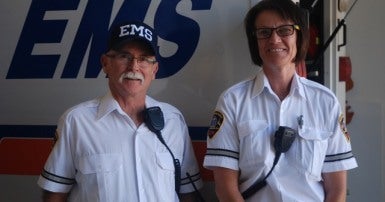The proposed review of emergency medical services (EMS) in the province of Saskatchewan could offer a solution for challenges that communities throughout the south east corner of the province are facing with emergency medical services.
“It is clear that there is an issue across the whole province, and it is good that the provincial government is finally taking leadership on this file and committing to improve emergency medical services,” said Sandra Seitz, president of CUPE Local 5999.
The Saskatchewan Advisory Panel of Health System Structure Report identified EMS as a focus area for improvements, specifically recognizing the important role of emergency medical responders (EMR) in rural EMS. Emergency medical responders are often local residents who staff the local ambulance on an on-call or casual basis. In CUPE’s experience, the lack of recognition and adequate compensation for EMRs is leading to challenges responding to emergency calls in a timely manner.
“Chronic staff shortages are leading to shutdowns of community services. Some communities can be without emergency medical services for up to 10 days a month, creating longer wait times for communities,” said Seitz. “The recruitment and retention of staff will continue to be a huge issue unless steps are taken to adequately compensate our members.”
Some CUPE EMR members are on call between 4,000 and 7,000 hours per year. Compare this to the average full time worker who works 1,944 hours per year. On-call and casual EMRs are paid very little for their time on call, and hardly any of their hours count towards benefits, holiday accruals, or pensionable earnings. This means there are people who have been working as emergency medical responders for 15 years who still receive no benefits.
“Emergency medical responders play a vital role in our health care system, and our provincial government needs to be supporting this work,” said Seitz. “Given the scope of the massive upheaval health care is facing, it is imperative that the government listens to frontline workers and the rural communities about how to improve and strengthen emergency medical services.”
CUPE represents emergency medical responders across the province. Over the last year, CUPE Local 5999 has been holding meetings with community members to hear about their concerns.


